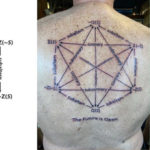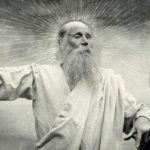We run our website the way we wished the whole internet worked: we provide high quality original content with no ads. We are funded solely by your direct support. Please consider supporting this project.

Why You Have Free Will
God’s decision to create a cosmos that was capable of love and that was, therefore, populated with free agents (see previous post) was also a decision to create and govern a world he could not unilaterally control. These are two aspects of the same decision. What it means for God to give agents some degree of morally responsible say-so over what comes to pass is that God’s say-so will not unilaterally determine all that comes to pass.
Of course, many have argued otherwise by saying that God determines the free choices of agents “in such a way” that these agents remain responsible for the evil they choose while God remains all-good in ordaining them to do these evil acts. Where is the coherent meaning in this? Language has meaning only insofar as it connects, at least analogically, with our experience. But I find nothing in my experience-—or any conceivable experience—-that sheds the least bit of light on what this mysterious “in such a way” might mean.
To illustrate, suppose that a scientist secretly implanted a neuron-controlling microchip in a person’s brain without that person knowing it. With this chip, the scientist could coerce this person to feel, think, speak, and behave however he wanted. Let’s say that this chip caused this person to murder someone. Can we conceive of any form of justice that would find the scientist to be innocent of the crime while holding the controlled subject responsible? Whoever or whatever rendered the murder certain to occur is morally responsible, whether by means of a microchip or a mysterious deterministic decree.
God limits the exercise of his power when he creates free agents. This is the view of open theism. To the extent that God gives an agent free will, he cannot meticulously control what that agent does. Yet the “cannot” in this statement is not a matter of insufficient power, for God remains all-powerful. It is simply a matter of definition. As stated in the previous post, just as God cannot create a round triangle or a married bachelor, so too he cannot meticulously control free agents.
If God revoked a person’s capacity to make a certain choice because he disapproved of it, then he clearly did not genuinely give him the capacity to choose between this or that. If he truly gave that person the freedom to go this way or that way, he must, by definition, allow them to go that way, even if he abhors it.
Does this mean that God can do nothing to prevent us from making choices that he abhors? Of course not. God can do a myriad of things to influence us in a different direction or to influence other people to help prevent, or at least minimize the evil someone intends. But the one thing God cannot do, by definition, is meticulously control or unilaterally revoke a free will once given. God has sufficient power to do anything he pleases, but the constraint free agency places on God is not about power; rather, it is about the metaphysical implications of the kind of world God decided to create.
—Adapted from Four Views on Divine Providence, pages 190-192
Category: General
Tags: Choice, Free Will, Open Theism
Topics: Free Will and the Future
Related Reading

Boyd’s Bad Ass Tattoo
by: Greg Boyd In the process of working through a philosophical issue surrounding the openness of the future around twenty years ago, I and two friends (Alan Rhoda and Tom Belt) ended up creating the “Hexagon of Opposition”, or “Hexagonic Logic of Futurity,” as I’ve sometimes called it. I’ll explain what it all means in…

Confronting Divine Determinism
Part of the fallen human condition inclines us to shirk our moral responsibility and accept that everything is predetermined, whether by God, the gods, fate, or blind chance. Various forms of determinism have been prevalent in most primitive religions, in much ancient philosophy, in most forms of Islam and even, most surprisingly, in much traditional…

Scientific Support for the Open View
If a position is true, every avenue of reflection ought to point in its direction. What follows are two more “pointers” to the view that the future is at least partly open (indefinite, composed of possibilities). I’ll first consider an argument from quantum physics, followed by a pragmatic argument regarding what we ordinarily assume to…

God Does Not Always Get What He Wants
One of the ways the Bible makes it clear that humans have free will and that God doesn’t predetermine human decisions is found in the responses God has toward human choices. Scripture consistently depicts God as being frustrated by the way his people obstinately resist his plans and Scripture often depicts God’s heart as breaking…

Evil, St. Augustine, & the “Secret” Higher Harmony
The problem of evil constitutes the single most difficult challenge to Christian theism. Volumes upon volumes have been written with the express purpose of rationally reconciling the belief in an all-good and all-powerful God with the reality that life is frequently an inescapable nightmare. Indeed, it is not overstating the case to claim that no…

Podcast: Do Open Theists Believe that God EVER Intercedes Directly in the World?
Greg considers God’s intervention in light of human prayer, and discusses the covenant of non-coercion. http://traffic.libsyn.com/askgregboyd/Episode_0122.mp3 [3] Swain, 40. Photo via Ted Van Peltflickr.com
